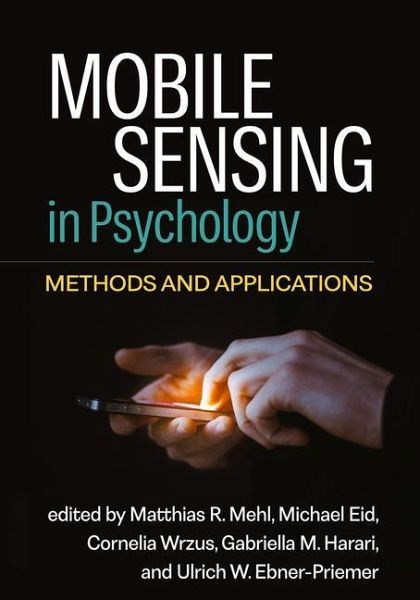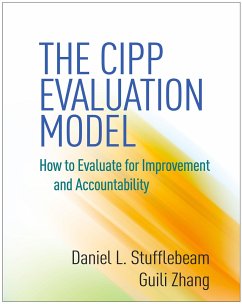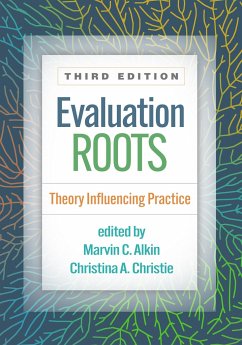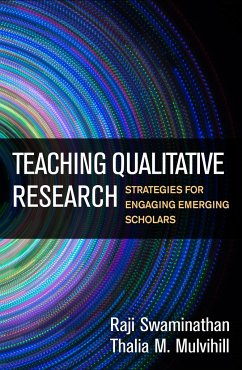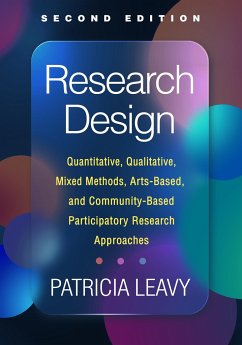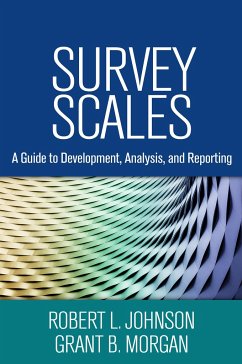Gebundenes Buch
Mobile Sensing in Psychology
Methods and Applications
Herausgeber: Mehl, Matthias R; Ebner-Priemer, Ulrich W; Harari, Gabriella M; Wrzus, Cornelia; Eid, Michael
Versandkostenfrei!
Versandfertig in über 4 Wochen

PAYBACK Punkte
61 °P sammeln!




Written expressly for social and behavioral scientists, this cutting-edge handbook describes the key concepts and tools of mobile sensing and explains how to plan and conduct a mobile sensing study.
Matthias R. Mehl, PhD, is Professor of Psychology at the University of Arizona. He is a social and personality psychologist interested in the conceptualization and measurement of how everyday social processes affect health and well-being. He employs mobile sensing methods for studying real-world social interactions and has pioneered a method that involves the unobtrusive sampling of ambient sounds via a smartphone app (the Electronically Activated Recorder, or EAR). Dr. Mehl has published extensively and given workshops on mobile sensing and other real-world psychological research methods. He is a Fellow of the Association for Psychological Science and the Society for Personality and Social Psychology. Michael Eid, PhD, is Professor of Methods and Evaluation at the Free University of Berlin in Germany. His research focuses on measurement theory, in particular on the development of psychometric models for longitudinal and multimethod research. Since the early 2000s, he has been contributing to the development of structural equation models for analyzing multirater data for different types of raters and research designs. His more applied research contributions are in the areas of subjective well-being, mood regulation, and health psychology. Cornelia Wrzus, PhD, is Professor of Psychological Aging Research at the Ruprecht-Karls University of Heidelberg, Germany, where she founded the Daily Life Lab. Her research focuses on socioemotional and personality development across the entire adult lifespan. Dr. Wrzus has published many articles on personality development, emotional processes, and social dynamics in daily life, using experience sampling, ambulatory physiological assessments, and mobile sensing. One particular concern is the integration of both open science standards and privacy protection in ambulatory assessment research of people's daily lives. She has served on the editorial boards of several personality journals and is president-elect of the Society for Ambulatory Assessment. Gabriella M. Harari, PhD, is Assistant Professor in the Department of Communication at Stanford University, where she directs the Media and Personality Lab. Her research focuses on everyday behavior and its relationship to personality and well-being. She takes an ecological approach to conducting her research, emphasizing the importance of studying people in their natural physical and digital contexts. Over the last decade, Dr. Harari has published extensively on mobile sensing and given workshops about using the method for studying daily life. Ulrich W. Ebner-Priemer, PhD, is Professor of Psychology and Chair of the Mental mHealth (mobile health) Lab at the Karlsruhe Institute of Technology in Germany. His work is characterized by its methodological focus on ambulatory assessment, investigating phenomena of interest in everyday life and real time. He is particularly interested in a multimodal operationalization of phenomena of interest, combining e-diaries with wearables, and digital phenotypes; real-time analyses and real-time feedback; and analysis of dynamic processes. Dr. Ebner-Priemer provides the technological mHealth framework for studies on a broad range of mental disorders. He is former president of the Society for Ambulatory Assessment and current Chair of the ECNP Digital Health Network.
Produktdetails
- Verlag: Guilford Publications
- Seitenzahl: 802
- Erscheinungstermin: 20. November 2023
- Englisch
- Abmessung: 260mm x 182mm x 43mm
- Gewicht: 1522g
- ISBN-13: 9781462553105
- ISBN-10: 1462553109
- Artikelnr.: 68325229
Herstellerkennzeichnung
Libri GmbH
Europaallee 1
36244 Bad Hersfeld
gpsr@libri.de
Für dieses Produkt wurde noch keine Bewertung abgegeben. Wir würden uns sehr freuen, wenn du die erste Bewertung schreibst!
Eine Bewertung schreiben
Eine Bewertung schreiben
Andere Kunden interessierten sich für



